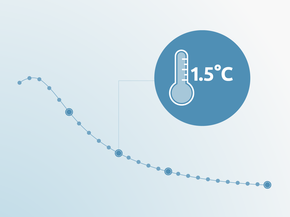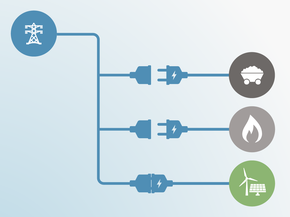Country summary
Overview
Switzerland’s efforts to tackle climate change were struck a blow in 2021 after the failure of its amended CO2 Act to pass in a referendum. Under the policies from its rejected CO2 Act, Switzerland would have met its now-rejected domestic emissions target. Under current policies, however, Switzerland is projected to miss even its less ambitious proposed domestic target of a 33% reduction below 1990 levels that is included in a newly proposed, watered-down version of its CO2 Act. Key policies have been taken out, and this represents a step backwards in climate policy for Switzerland. With the release of official 2020 GHG inventory data, it is now clear that Switzerland missed its 2020 emissions reduction target of 20% below 1990 levels.
The CAT rates Switzerland’s climate targets, policies and finance as “Insufficient”. The “Insufficient” rating indicates that Switzerland’s climate policies and commitments need substantial improvements to be consistent with the Paris Agreement’s 1.5°C temperature limit. Switzerland’s 2030 domestic emissions reduction target is consistent with keeping warming below—but not well below—2°C. If fully implemented, Switzerland’s current policies would fall short of achieving this target. This emissions trajectory is consistent with between 2-3°C of warming if all countries took a similar approach. Switzerland is also not meeting its fair-share contributions to climate change mitigation, and in addition to strengthening its targets and policies, also needs to provide additional support to others.
The CAT rates Switzerland’s climate policies and action as “Insufficient” when compared to modelled domestic pathways.
Switzerland’s centrepiece climate legislation, an amended version of its CO2 Act, was knocked back by voters in a referendum in June 2021. Despite a clear segment of the population voted it down because it did not go far enough, the Swiss government has responded by watering down the bill. The proposed new legislation, which has yet to be passed by the Swiss Parliament as of May 2022, removes the more ambitious domestic 2030 emissions reduction target of 37.5% below 1990 levels, instead adopting a weaker 33% target. This means that a greater share of emissions reductions from abroad will be needed to meet its overall target of at least a 50% reduction below 1990 levels.
In addition to this weaker target, the government has removed key provisions from the bill. These include a levy on airplane tickets, the exclusion of any new taxes in favour of tax incentives and funding instruments, including a limitation to the buildings sector carbon levy at a level that will be reached in 2022, and the scrapping of a proposed 2023 ban on fossil fuel heaters in new buildings.
Measures included in the rejected version of this bill were previously assessed by the Climate Action Tracker to be an insufficient contribution to global climate mitigation efforts, but despite this, Switzerland is now moving backwards on climate policy. While the bill remains in the legislative process, there continues to be an opportunity for it to be strengthened. A failure to do so will lock in a failure of ambition in this critical decade for climate action.
The full policies and action analysis can be found here.
In its updated NDC, Switzerland aimed to increase the domestic emissions reduction component of its 2030 target to 75%, an increase of 15 percentage points from its previous 60% share. However, this increase in its domestic emissions reduction was part of the proposed amended CO2 Act, which was rejected in a referendum in June 2021. A proposed revision to the CO2 Act, released in December 2021, targets a 66% share, which amounts to a 33% overall reduction in domestic emissions below 1990 levels. This reduction in domestic ambition is incongruent with the level of concern expressed by Swiss residents, with climate change seen as roughly as much of a concern as the COVID-19 pandemic in 2021, which was the top-rated concern of those polled. We rate this target as “Almost sufficient” when compared to global least cost modelled pathways, though, with the rejection of the proposed increase in domestic ambition, this target sits at the top end of the “Almost sufficient” range and is on the verge of being downgraded to “Insufficient”.
The CAT’s assessment of the Switzerland’s total fair share contribution takes into account its emissions reduction target and its climate finance.
Switzerland’s NDC is split into domestic and overseas emissions reductions components, which together form its overall target of at least a 50% reduction below 1990 levels by 2030. We rate the overall target, which includes its recent deals with Peru and Ghana to achieve emissions reductions in these countries, as “Insufficient” when compared to its fair share emissions allocation.
The “Insufficient” rating indicates that Switzerland’s overall NDC target in 2030 needs substantial improvement to be consistent with the 1.5°C temperature limit when compared to its fair share. Some of these improvements should be made to the domestic target itself, others could come in the form of additional support for emissions reductions achieved in developing countries in the form of finance. If all countries followed Switzerland’s approach, warming would reach up to 3°C.
We rate Switzerland’s international public climate finance contributions as "Insufficient". Switzerland has committed to increasing its climate finance but contributions to date have been very low compared to what would be required under its fair share. To improve its rating Switzerland needs ramp up its international climate finance contributions.
Switzerland’s climate finance is not sufficient to improve the fair share target rating, and the CAT rates the Switzerland’s overall fair share contribution as "Insufficient".
Switzerland committed to a net zero target as part of its long-term strategy submitted to the UNFCCC. The net zero target generally covers key elements but fails to meet best practice standards for some of them. The CAT evaluates the net zero target design as "Average".
The full net zero target analysis can be found here.
Further analysis
Latest publications
Stay informed
Subscribe to our newsletter






